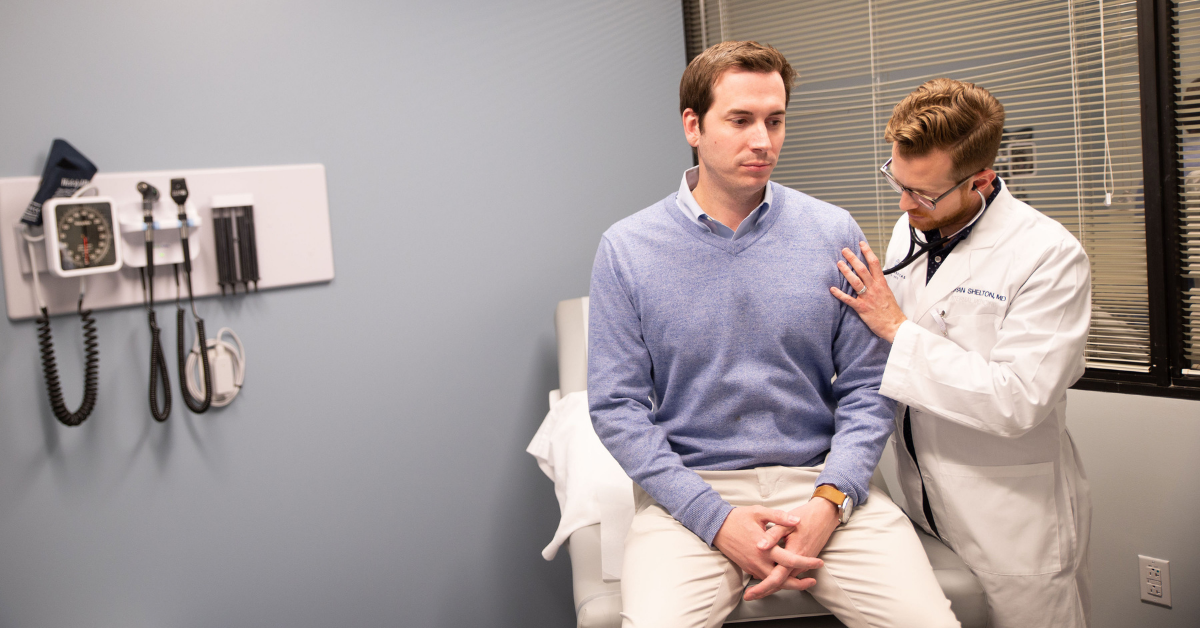
During the pandemic, many people have placed their healthcare focus on avoiding COVID-19, and rightfully so. However, in some cases, it has also kept people away from their annual well visits, causing a rise in late-stage cancer diagnoses for conditions like breast and colorectal cancer.
New findings, published in “JAMA Network Open,” show that while the total number of diagnoses year-to-year remained similar, there was a sharp increase in the number of late-stage diagnoses.
In 2019, 63.9 percent of new breast cancer diagnoses were stage 1 disease, compared to 51.3 percent in 2020. However, in 2020, 6.2 percent of patients were diagnosed with stage IV breast cancer as compared to 1.9 percent in 2019. In total, this represents a 226 percent increase in stage IV breast canceer diagnoses year-over-year.
“A later stage cancer diagnosis dramatically limits treatment options,” says Dr. Ryan Shelton, an internal medicine specialist at Tryon Medical Partners SouthPark. “If we’re not looking for it early through screenings, we can’t prevent it. And if we’re not catching it early, it could spread or already be present at a more advanced stage. Those treatments can be tougher to handle and less successful. The goal of staying up-to-date with visits to your primary care provider is to prevent cancer diagnoses and early detection at its most treatable stage.”
The two cancers highlighted in this recent study, breast and colorectal cancer, both have reliable screenings available through mammography and colonoscopy and, when caught early, have successful treatment options that make a cure possible. At preventive care visits, physicians like Dr. Shelton are able to speak with patients about their risk factors, including family history, and recommend screening plans unique to their health situation.
Colonoscopies are so successful at preventing colon cancer deaths that the rate of morbidity has decreased drastically for older Americans. Now, as the disease is on the rise in younger patients, the recommended screening age for those at average risk of colon cancer has dropped from age 50 to age 45.
“Everyone assumes ‘it’s not going to happen to me,’” Dr. Shelton says. “And we hope that’s the case, but the delay in screening limits your treatment options later. Especially with colon cancer, if you’re waiting until there are symptoms, it’s most likely at a more advanced stage.”
Missed wellness visits are not only a lost opportunity for prevention and early diagnoses of cancer but also for finding other conditions, like diabetes and high blood pressure. Over time, untreated diabetes leads to increased symptoms. High blood pressure, while typically asymptomatic, can lead to stroke and vascular damage if left untreated.
“When we postpone our preventive visits, it is also a missed opportunity to review daily lifestyle habits,” Dr. Shelton says. “Good or bad, it’s those habits that really add up to impact our wellness over time. We are looking at the whole picture. Beyond physical conditions, we focus on individual risk factors, genealogy and family history, stressors, and emotional health.”
The role of a primary care physician is to be the quarterback of your team of doctors. By having this comprehensive view of your health, they can optimize what should be tackled first.
Despite the COVID-19 pandemic feeling like an all-consuming era of our lives, the fact is that the rest of our health did not stay idle. Time continued to move. In fact, it has been two years since the beginning of the pandemic, which is quite some time to go without seeing your primary care physician. It’s time to change that trend and make an appointment.
“We did a good job minimizing COVID risks,” Dr. Shelton says. “Now is the time to treat our full health with the same vigor.”

